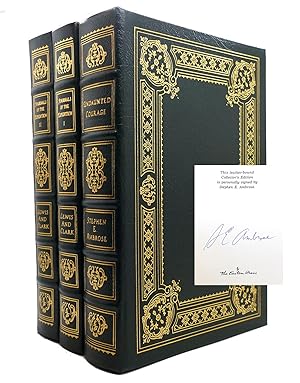

I do not do that, have never done that and never will," he wrote in a newspaper editorial. "I always thought plagiarism meant using other people's words and ideas, pretending they were your own and profiting from it. Ambrose apologized for careless editing but otherwise stood by his work. He went off to the Philippines to research World War II battles for a book he planned but did not live to write on the war's Pacific theater. When charges of plagiarism _ specifically that he failed to use quotation marks and misplaced footnotes on scattered passages in his many books _ arose last winter, the historian simply ignored the headlines.

The final product, To America: Personal Reflections of an Historian, is set for release Nov. Bristling at the suggestion it might be his memoir, he described it as part interpretive history, part recollection and part grandfatherly musing. to rush to his word processor through the summer _ with plans to title his new book A Love Song to America. Ambrose quickened his pace when he was diagnosed with advanced lung cancer in April. Ambrose was an adviser on Spielberg's blockbuster World War II film Saving Private Ryan and the director's documentary Price for Peace.Ī prolific writer who became a cottage industry planning historic tours, creating museums and memorials, and giving lectures, Mr. He also wrote Band of Brothers: E Company, 506th Regiment, 101st Airborne from Normandy to Hitler's Eagle's Nest, the basis of a successful cable television series co-directed by Steven Spielberg and Tom Hanks. Ambrose became a best-selling author with his 1994 book, D-Day June 6, 1944: The Climactic Battle of World War II. A history teacher for much of his life, Mr.


 0 kommentar(er)
0 kommentar(er)
